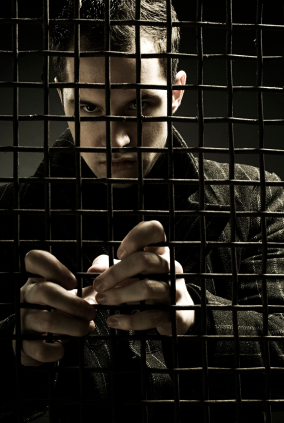 “Remorse is the poison of life.”―Charlotte Brontë
“Remorse is the poison of life.”―Charlotte Brontë
When someone tells me their life goal is to live with no regrets, I tend to smile and nod politely. “Good luck,” I think, “I sincerely hope you succeed.” Truth is, I don’t know anyone who has.
The older I get, the more I recognize that no one gets out of this life without desperately wishing that some things could have happened differently. There are situations you can repair, and there are things you desperately wish you could change—but can’t.
Maybe you regret:
An action:You ruined your marriage with an affair, lost years to an addiction, or perhaps you destroyed an incredible job because of embezzlement. Sometimes we end up paying a cost for our behavior that’s much higher than we anticipated.
An accident: At times, terrible things are outside of our control. Whether it was a pedestrian you accidentally hit with your car, or a hunting accident, it only takes a moment to change everything.
An omission: Sometimes we experience the worst remorse from opportunities we let pass. It’s that love we should have professed, or that person we wish we’d invested in more before we lost them. Nothing haunts like the words “if only.”
There are areas in my life where, after years, I’m still paralyzed by acute loss and pain (and sometimes shame). Here is part one in a series on dealing with regret:
Appropriate transparency
Obviously, you own your mistake—that’s why it troubles you so much. But sometimes we deal with that disgrace by hiding our shame. Either we fear the judgment of others, or we don’t want others to see how harshly we judge ourselves. But what’s hidden has a tendency to putrefy. You do yourself no favors by quietly carrying your humiliation deep inside.
Those involved
First, you need to be open with the people involved. This can be horribly painful, but it’s like setting a broken bone. The accident or sin that you’re carrying has likely affected others, and they deserve your honesty and openness.
You need to be wise about this. The other parties involved may not be ready to involve you in their healing. This is more about your willingness to be open than it is about your need to unload your burden. Sometimes sharing with the parties involved will do more harm than good. Be discerning about the hows and whys, but be open when the time’s appropriate.
Those you can trust
You also need trustworthy confidants who will help you carry and understand your remorse. At times we all need cheerleaders. It’s important that you have an intimate community who knows who you truly are. Nothing can help release you from the prison of anxiety like committed people who know the worst about you and love you anyway.
A caveat about openness
Your story is yours, and you need to be wise about how you share it. Carrying your shame in silence can cause damage, but so can over sharing. Don’t use your story as currency for attention or sympathy. It will backfire.
That said, an important part of having a wound is using your brokenness as a salve for others. It is entirely fitting to draw upon and share your story in relating and ministering to others around you. In fact, true ministry will always originate from that broken place.
Forgiveness
This is so cliche, but that doesn’t negate its validity. It takes a lot of forgiveness to get through the worst situations. Obviously, you need to get to a place where you can forgive someone who’s wronged you, but it’s also important learn to forgive yourself. There comes a time when you need to accept that beating yourself up isn’t changing anything but your ability to draw meaning from today.
But there are others you need to forgive:
You need to forgive those who will never forgive you. It’s easy for people to find the momentum they need to move forward when they’re driven by hatred. It’s not ideal for them, but that’s outside of your control. You need to forgive them for your benefit—even if they’re never able to reciprocate.
You need to forgive those who won’t forget. The things you regret generally come out of situations that are emotional powder kegs. Sometimes you’ll have someone lashes out just to hurt you. It’s hard, but you need to forgive them to.
You need to forgive God. When life-changing, soul-crippling tragedy strikes, it’s hard not to blame God. If he’d only intervened. . . If he’d only stopped you, prepared you, or helped you, this never would have happened. You need to forgive God. Not because he’s at fault, but because you need to release him from the responsibility tied to your tragedy.
Forgiveness is never a one-time affair. Whether it’s you or others who need to be released from your prison of bitterness, you’re going to have to forgive often and aggressively. Those captives will need you to liberate them often. Make sure you do.
We’ll talk more about remorse in a future post. In the meantime, do you have some tips that have helped you, let me know in the comments.
![]()


Comments